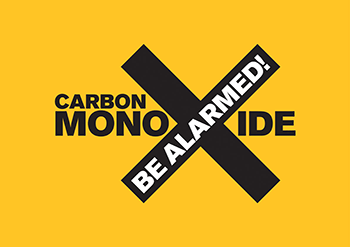To ensure proper use of your portable generator. We prepared a list of portable generators frequently asked questions FAQ. Having a question or facing some generator related issues read along.

General
What is the difference between an air-cooled engine and a liquid-cooled engine for a generator?
Air-cooled generators use fans to flow air for cooling the engine. While liquid-cooled generators use splash lubrication systems for cooling the engine. Generally, liquid-cooled engines are used on larger wattage generators.
What is the difference between running watts and starting (surge) watts?
Running watts are the amount of power a generator produces continuously. On the other hand, starting watts are the amount of power a generator produces for short periods of time. Such as for starting up a connected appliance. Typically required for only a few seconds.
Can I connect a portable generator to my home?
No. Do not connect your generator directly to any electrical system. It could cause electrocution and cause damage to the equipment. A transfer switch must be installed to prevent damage. It’s also advised that a professional electrician install the transfer switch.
Do I need a transfer switch to connect a portable generator to my RV?
Yes, just like connecting to your home. You would need a transfer switch to connect RV generators to your motor-home (RV).
What do I do if there are any missing parts or anything damaged in my box after unpacking?
Please contact the dealer selling the generator. Replacing the missing items or changing the whole unit should be accessible. Never accept damaged goods.
Operation and Performance
Can I run my generator continuously non-stop?
Generators can run continuously as long as maintenance intervals are given. Since gasoline is a highly flammable fuel. Just like fueling a car, you need to stop the generator before fueling. And also give it time to cool down. Besides, it is important to pay attention to the recommended maintenance schedule for your unit. Furthermore, never let the generator run out of fuel while it is under any load. If this happens, it could destroy the connected appliances or cause harm to the generator. Always ensure that your generator is operating properly.
What happens if the generator operates at a low load at all times?
If a generator runs at less than a quarter load at all times; it would result in a decline in the generator’s performance. Therefore, you should try to operate at full load from time to time; to ensure the generator’s long life.
What happens if I overload the generator?
Most generators have circuit breakers to protect engine damage from overloading. If overloaded, the circuit breaker will trip. It will stop the power flow to protect the generator, as well as any connected equipment. It takes about 10 seconds for the breakers to cool down. Then, you should be able to reset them by pressing the breaker button.
Can I start the generator with any applied load?
No, the engine of the generator needs to come up to the proper speed before applying any load. Therefore, doing otherwise may cause damage to your connected appliances.
Can I shut down the generator with the load still on?
No, you must remove any connected appliances before turning the generator off. This prevents any connected appliance from harm that could happen due to slow engine speed.
Can I use the generator with an extension cord?
It is possible to use extension cords. While keeping in mind that a long cord will cause some drop in voltage. As a general rule, the voltage will drop by 2 – 3 volts for a 10-meter cord, 5 – 6 volts for a 20-meter cord, and 8 – 10 volts for the 30-meter cord. Therefore, using a very long cable is not recommended.
How does the fuel valve work?
A device that permits or stops the running of fuel to the engine. Before turning on the generator, you should always keep the fuel valve open. Then it should be directly closed after turning off the generator.
Maintenance and Check-Up
Is it good to refill oil for my portable generator?
To prolong the life of the engine; it is recommended to change the total amount of oil regularly, not refill it. The reason is, engine oil gets ruined over time due to getting exposed to heat from the engine.
What will happen to the engine if I use it without changing the oil?
The components would get damaged by time and would affect the generator’s life as well. Therefore, regular oil changes are recommended.
What happens if too much oil is added?
This could lead to an engine’s resistance increase, the oil may leak out, or white smoke may be emitted from the exhaust. In some cases, there is also a possibility of performance decline. Therefore, always apply the amount of oil specified in the manual.
What happens if the amount of oil is too small?
With the low-oil shutoff function that is available in most generators. If the oil level is low, then the oil warning system activates. As a result, it prevents burning the motor by stopping the engine.
Does high-octane gasoline, add to better fuel economy and give improved output?
This is not correct. It does not improve fuel economy nor output.
What is unleaded gasoline?
It is the same as regular gasoline. Purchased from any gas station.
What kind of fuel and oil should I use in my portable generator?
Always refer to your generator’s manual for a list of recommended fuel, oil, or any additives.
What will happen if I use another type of oil?
It is not recommended. Follow the oil recommendations in the generator’s manual for proper usage. Engine performance could be affected if different oils are blended.
Is there a need to exercise my generator?
Yes, simple maintenance is required. All generators require scheduled oil and filter changes. To ensure maximum performance for years of reliable service. Refer to the owner’s manual for routine maintenance procedures. Some portable generator models have built-in maintenance reminders on the control panel.
Where can I buy parts?
Please contact the dealer selling the generator.
Safety and Precautions
Is it possible to add an extension exhaust for the muffler?
No, it is not recommended. As there is a risk of decline in the engine’s performance and could damage the whole unit due to vibrations as well.
Can I vent out the exhaust from an indoor area?
No! Never run a generator in any type of indoor areas. Operate your generator only outside where there is plenty of airflow and ventilation.
Can I run my portable generator in the garage with the door open?
No! Use your portable generator only in an open area. Running a generator in an enclosed area can be fatal due to carbon monoxide poisoning.
Do portable generators cause carbon monoxide poisoning?

Engine exhaust contains carbon monoxide CO. A poisonous gas that can kill in minutes. It has no smell, no taste, and no color. Only use your generator outside and far away from windows, doors, and vents. Direct the engine exhaust away from any occupied spaces. In addition, installing carbon monoxide alarms are highly recommended. As it could save a life from carbon monoxide poisoning if the generator exhaust enters the house in any way. For the generator’s safety, read the user manual’s instructions carefully before running your generator.
Can I build a soundproof box to lower the generator’s operating sound?
This may cause problems; in the engine cooling, exhaust, and it can also make changes in the engine’s performance due to overheating and other difficulties. You should not surround your generator, nor cover it with a box during operation. However, to reduce the sound level; consider looking for the quietest generators that have suitable quiet mufflers.
Does the generator need to be grounded?
Yes, for safety, portable generators must be grounded properly. To avoid the risk of possible electrocution; a copper rod is driven into the ground, and a copper wire gets attached from the rod to the generator frame. This will give you solid protection against electrical shock. Furthermore, always check the regulations related to grounding your generator.
What is a floating system?
A shock prevention system referred to as a floating system, adopted in some portable generators. This system doesn’t need to be grounded. For this reason, it eliminates the chances of an electric shock. As a result, it’s not necessary that a generator be grounded. However, if the generator is externally connected, then it should be grounded via the grounding pole.
Storing and Safe Keeping
How long can I leave gas in the tank?
Stale fuel is bad for your generator. Time varies upon regional conditions and may occur in as little as 15 days. Therefore, you should not keep gasoline stored for a long period of time. Please check with your servicing dealer for storage recommendations specific to your region.
What can I do if I’m not planning to use my generator for more than 30 days?
If you don’t plan to use your generator for long periods of time. Follow the storage guidelines in the user’s manual. It should cover all aspects of storage. Such as draining the fuel tank, adding a fuel stabilizer, and cleaning the carburetor, as well as storage precautions.
What is the life expectancy of my portable generator?
The life of any generator is dependent on; the care it receives, as well as maintenance. In addition to the conditions under which it operates.
Will my portable generator work in the rain or snow?
No, the generator needs to operate in a dry and safe location.
Can I power wash my generator?
No, the generator has many sensitive components. As a result, it could be damaged by water and the high pressure of the power washer.
Can I use gasoline to clean the generator?
No, gasoline is dangerous and will ruin the paint as well.
What is the best method for cleaning my generator?
Compressed air. A damp cloth and soapy water. But avoid using too much water, and be careful not to touch any electrical components.
What to do if I get water in the fuel tank?
First, drain the fuel from the fuel tank, and discard it in a safe manner. Then refill with fresh fuel.
We hope we could answer all your portable generators frequently asked questions FAQ. Having any further questions feel free to get in touch with us. Submit your questions in the comment section below.
You may also be interested to check our standby generators, inverter generators, or portable solar generators lists.

